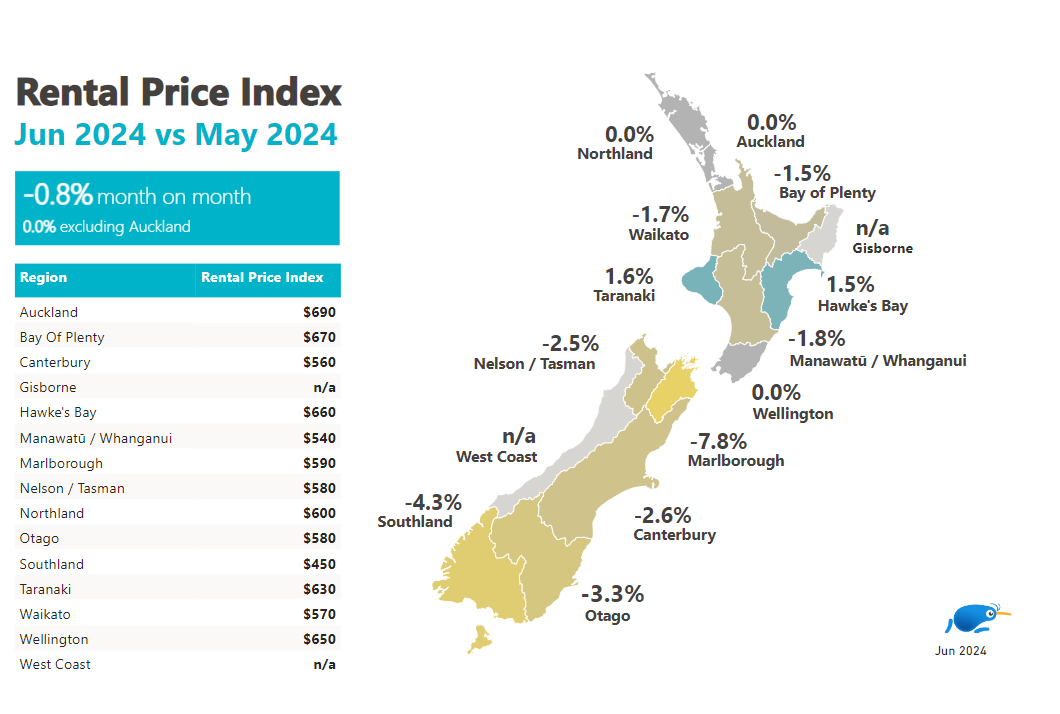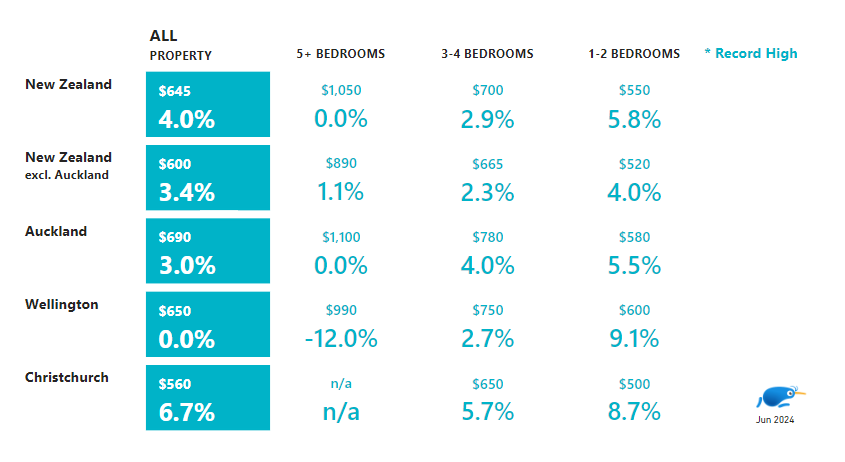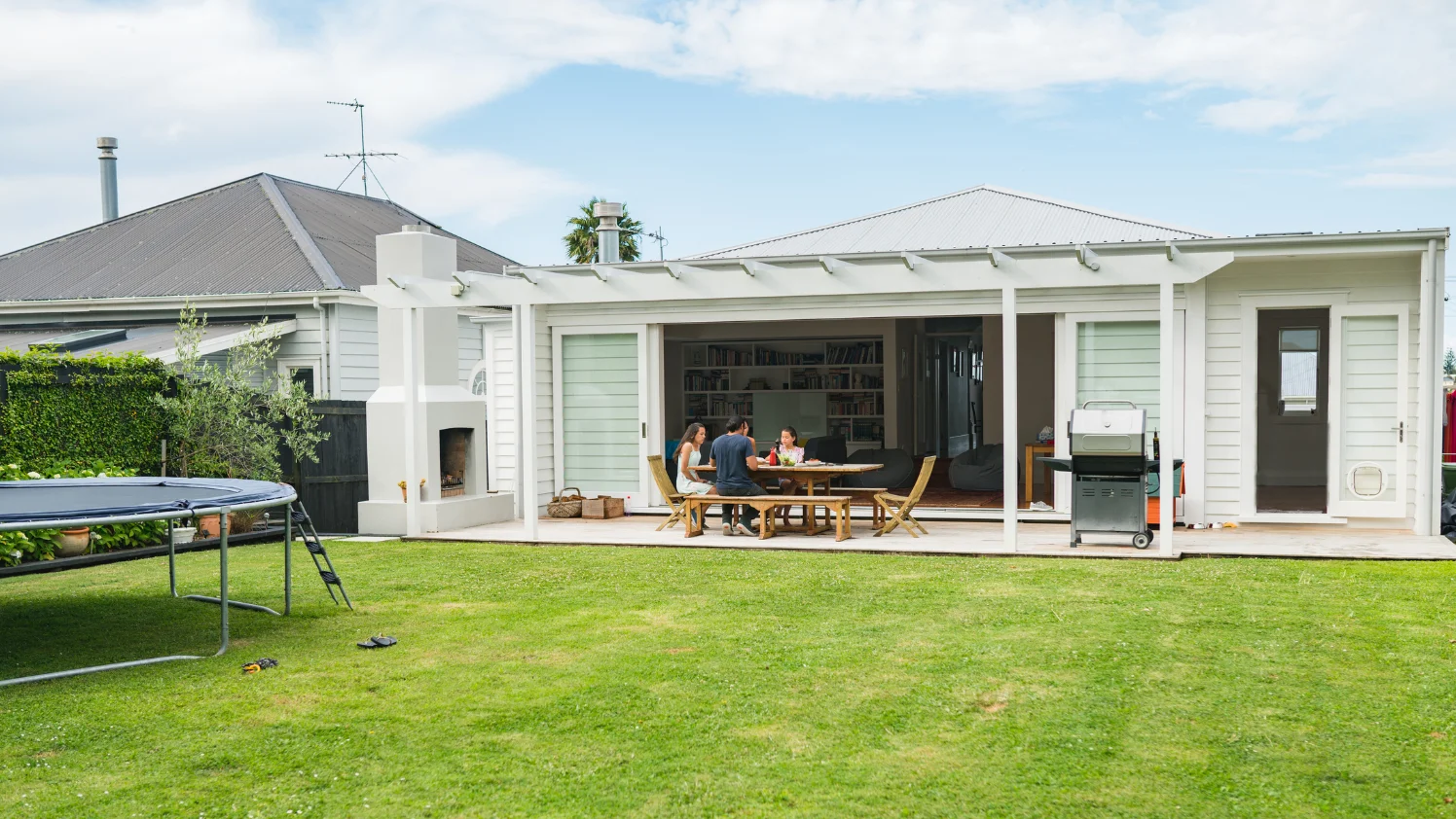News Next article
June Rental Price Index 2024
Rental prices experience first decline in nearly two years
5 August 2024Rental prices have fallen slightly this month, the first time a decrease has been recorded since 2022, according to Trade Me's latest Rental Price Index.
The index reveals that the median weekly rent in Aotearoa dropped by $5 (0.8%) month on month to $645 per week.
Trade Me Property Sales Director Gavin Lloyd said that an influx of rentals over the past three months has helped ease the pressure on rental prices.
"There hasn’t been a month on month drop in rental prices since September 2022 - so this will be welcome news for tenants who have been dealing with record high rents."
“We know that with the number of Kiwis leaving the country, there is less demand for rentals, particularly among young professionals who are most likely renters and are being tempted by higher wages overseas.”
“As a result, we might see further drops in rental prices as we move further into the winter months, especially given that the latest inflation figures are falling faster than expected.”
“Often we have a slight delay in prices coming down for rentals as understandably landlords will be hoping to keep their rent the same - but now with less people competing for properties they may have no choice but to lower the price to help attract new tenants,” said Lloyd.
Many South Island regions experience drop in prices
Auckland was once again the most expensive region to rent - however the average asking price remained stable at $690. While most of the North Island saw changes, the biggest drop was the Manawatu/Whanganui region which was down -1.8 per cent.
The South Island was a different picture - with all regions apart from the West Coast seeing a drop in the price of rentals, said Lloyd. Marlborough recorded the biggest fall of 7.8 per cent - this was largely due to the large increase recorded last month.
“The South Island has generally been pretty resilient in terms of month on month prices - particularly Christchurch which hasn’t seen a drop over two per cent in over a year but in June prices fell by 2.6 per cent to $560.”
Rental demand continues to fall
The demand for rental properties fell in June for the eight consecutive month, down nine per cent month on month.
“It’s pretty common to see demand dwindle in winter,” said Lloyd. “There are a number of reasons why it tends to drop - Kiwi tend to want to stay put in the colder months and the added expense of moving house at the moment will be putting a lot of people off moving - especially as living costs are increasing," said Mr Lloyd.
Gisborne and Otago experienced the largest month on month drop of 23 per cent. Despite the public sector job cuts in Wellington, the region recorded one of the smaller declines this month of 4 per cent.
Overall, the supply of listings dropped by three per cent compared to the previous month - however there is still a large number of listings available compared to last year, up 28 per cent.
Wellington city landlords struggling to attract tenants for larger properties
The national median rent for 5+ bedrooms stayed flat at $1050 for June, however the capital city saw a 12 per cent decrease - with prices now $990 a week.
“Landlords may need to look at reducing rents for larger properties as they sit vacant for longer, while competition for smaller houses is driving up prices for 1 and 2 bedroom properties."
“Anecdotally we’ve heard people are downsizing to smaller houses and share rooms to help manage with the rent increases we have been seeing over the last couple of years in the capital,” said Lloyd.
Smaller properties across the country have all recorded increases in the 1-2 bedroom size, with Wellington City seeing the highest increase of 9.1 per cent to $600 per week followed by Christchurch up 8.7 per cent to $500 - which is still the most affordable option out of the three main city centres.
Other news you might like





